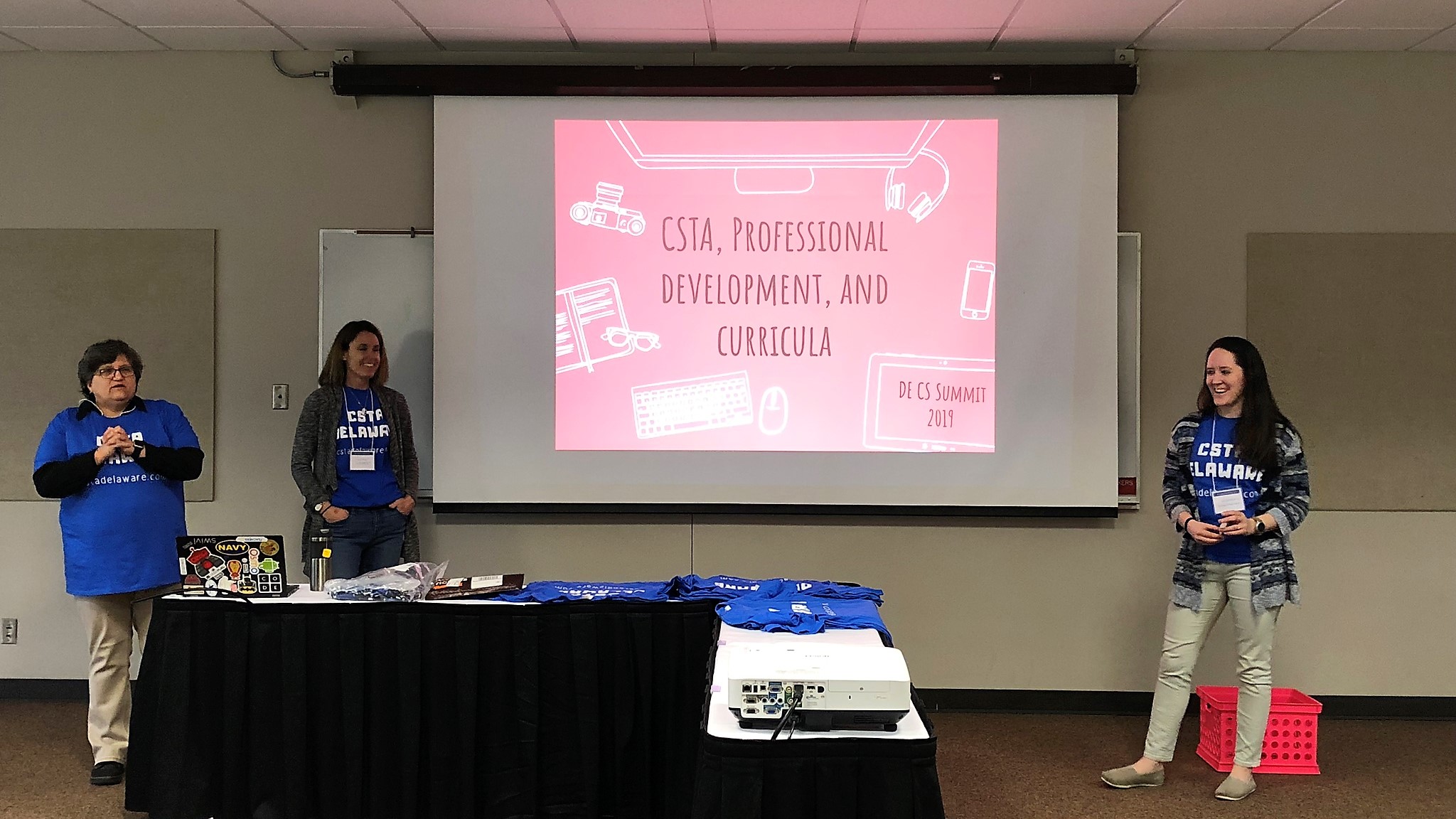School of Education
Delaware Computer Science Education Summit

Education leaders work to increase K-12 students’ access to computer science
An increasing number of Delaware high schools offer computer science courses. Still, there’s more work to be done to ensure that every child in the First State has the opportunity to learn computing skills that are essential for success in our modern economy.
That’s why state leaders, industry and business partners, nonprofits, district administrators, college counselors, school administrators, K-12 teachers and higher education faculty convened for the Delaware Computer Science Education Summit, held on March 28, 2019 at the University of Delaware’s Clayton Hall. Together, leaders
discussed ways to increase access to computer science education in Delaware and shared best practices from their experience teaching computing to the next generation.
The summit was co-organized by Lori Pollock, Alumni Distinguished Professor of Computer and Information Sciences, and Chrystalla Mouza, Distinguished Professor of Teacher Education. Mouza and Pollock are co-principal investigators, along with associate professor of computer and information sciences Terry Harvey, on a three-year $997,348 grant that focuses on computer-science-related professional development for teachers. Through their program Partner4CS, they conduct educational research, affect policy change, and support teachers in their efforts to develop high-quality computer science courses.
“The keynote speakers, Carol Fletcher, who serves as the Deputy Director of Outreach for the University of Texas STEM Center, and Jennifer Rosato, the Director of the National Center for Computer Science Education at the College of St. Scholastica, were especially inspiring to those of us passionate about broadening access to computer science (CS) education to youth,” said Pollock. “They have both developed programs to increase the number of teachers who are equipped to teach CS in K-12, including a spectrum of professional development, certificate programs, minors, and degree programs. The lack of teachers prepared and confident to teach computer science K-12 is the major obstacle facing Delaware and the nation in reaching the goal of providing CS access to all youth.”
Mouza said: “We are grateful for our partnership with the Delaware Department of Education, the Delaware chapter of the Computer Science Teachers Association and the teachers who have worked with us during the last few years to advance computer science education in Delaware. We look forward to developing more formalized opportunities for teachers in our state and beyond to advance their knowledge and skills in teaching computer science using equitable pedagogy.”
Luke Rhine, director of career and technical education and STEM initiatives for the Delaware Department of Education, explained that by 2026, Delaware will replace nearly half its workforce. “Every single kid has to find a path to a meaningful career,” he said. Growth is expected in the information technology sector, and jobs in IT pay better than the average career. The Delaware Pathways programs in information technology have helped to increase access to computer science coursework.
“Delaware’s work in this space is nothing short of remarkable,” said Rhine. “People in this room are part of it.” More work is still needed to close gaps—especially in the percentage of girls pursuing computer science, which is far below the percentage of boys who do so.
Partner4CS will host summer 2019 professional development for K-12 teachers on June 24 to 28, 2019. Interested teachers can apply before April 30, 2019 for priority consideration.
Article by Julie Stewart.
Photo by Hui Yang.



